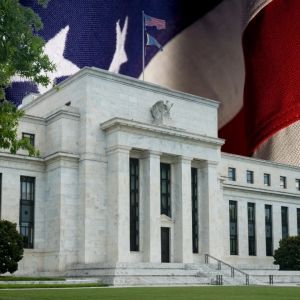CoinDesk
2025-04-15 10:13:57
Bitcoin ETFs Lose Over $800M in April as Institutions Stick With Bonds Amid Tariff Volatility
Наиболее читаемые новости
Прочтите Отказ от ответственности : Весь контент, представленный на нашем сайте, гиперссылки, связанные приложения, форумы, блоги, учетные записи социальных сетей и другие платформы («Сайт») предназначен только для вашей общей информации, приобретенной у сторонних источников. Мы не предоставляем никаких гарантий в отношении нашего контента, включая, но не ограничиваясь, точность и обновление. Никакая часть содержания, которое мы предоставляем, представляет собой финансовый совет, юридическую консультацию или любую другую форму совета, предназначенную для вашей конкретной опоры для любых целей. Любое использование или доверие к нашему контенту осуществляется исключительно на свой страх и риск. Вы должны провести собственное исследование, просмотреть, проанализировать и проверить наш контент, прежде чем полагаться на них. Торговля - очень рискованная деятельность, которая может привести к серьезным потерям, поэтому проконсультируйтесь с вашим финансовым консультантом, прежде чем принимать какие-либо решения. Никакое содержание на нашем Сайте не предназначено для запроса или предложения


















